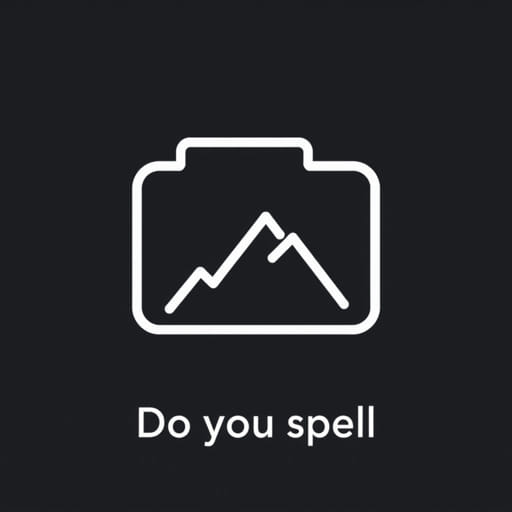When it comes to understanding and using the English language correctly, even the simplest questions such as Do you spell likely? can lead to deeper discussions about language, spelling, and context. Although likely is a commonly used word, many English learners and even native speakers occasionally pause to double-check its spelling or wonder about its grammatical usage. This topic aims to break down everything related to the word likely, from its correct spelling and pronunciation to its usage in different contexts, ensuring readers not only spell it right but also use it properly.
Correct Spelling and Pronunciation of Likely
The correct spelling of the word islikely. It is spelled L-I-K-E-L-Y. This word consists of six letters and two syllables:like-ly. The pronunciation is typically /Ëlaɪk.li/ in phonetic symbols. It is a standard word in both American and British English, with no regional spelling variations.
Understanding the Word Structure
The word likely is formed by adding the suffix -ly to the base word like. While -ly is commonly used to turn adjectives into adverbs, likely is unique because it can function both as an adjective and, in some contexts, as an adverb. This dual nature makes it especially useful in conversation and writing.
Definitions and Usage of Likely
Now that we know how to spell likely, it is important to understand what the word means and how it is used. The term is commonly used to express probability or possibility. Here are the main ways it is used:
- As an adjective: to describe something that has a high chance of happening.
- As an adverb (less commonly): in certain informal expressions, especially in British English.
Examples of Likely as an Adjective
When likely is used as an adjective, it modifies nouns and expresses the probability of an event or outcome. Below are several examples:
- It is likely to rain tomorrow.
- She is the most likely candidate to win the competition.
- That movie is likely to be a big hit.
In all these cases, likely describes how probable something is. It often follows linking verbs such as is, seems, or appears.
Examples of Likely as an Adverb
Though not as common, likely can occasionally be used as an adverb in informal speech. In this case, it generally follows verbs. For example:
- He’ll likely come by in the evening.
- They’ll likely finish the project by next week.
Note that this use is more frequent in North American English. In British English, probably or most likely is often preferred for adverbial use.
Common Confusions with the Word Likely
Despite being a simple word, likely can sometimes be confused with other similar terms or misused. Here are a few common issues:
Likely vs. Probably
While both words express possibility, probably is an adverb, and likely is primarily an adjective. You might say:
- He is likely to come. (Correct)
- He probably will come. (Correct)
- He likely will come. (Acceptable, especially in American English)
Although He likely will come is commonly used, it may sound informal or awkward in formal writing. In such cases, probably is the safer choice.
Likely vs. Unlikely
Unlikely is simply the negative form of likely. If something is unlikely, it means there is a low probability of it happening. Examples include:
- It’s unlikely that he’ll change his mind.
- This route is unlikely to save time.
Remember, while likely means probable, unlikely means improbable. The two should not be used interchangeably.
Synonyms and Alternative Phrases
If you want to avoid repetition in your writing or speech, you can use synonyms or similar phrases. Here are some alternatives to likely:
- Probable
- Plausible
- Possible (though this suggests a lower degree of certainty)
- Expected
- Foreseeable
- Apt (in some cases, e.g., He is apt to forget.)
Each of these words may have slight differences in meaning, so choose based on context and tone.
Origin and Etymology of Likely
The word likely comes from the Old Norse wordlÃk-ligr, which roughly translates to having the appearance of. Over time, the meaning evolved to indicate probability or likelihood. It has been part of the English language for centuries and remains a key term in expressing possibility.
Why Knowing the Spelling Matters
Correct spelling is essential in both spoken and written communication. Even though likely is a word that most people recognize, spelling errors can lead to confusion or misunderstandings, especially in professional or academic settings. Mistakes such as likly, likey, or likelye may seem small, but they can affect credibility and clarity.
Tips for Remembering the Spelling
To ensure you always spell likely correctly, here are a few helpful tips:
- Break it into parts: like + ly. Both are simple and familiar components.
- Practice using it in different sentences to build memory.
- Use mnemonic devices. For example: I like to spell likely’ correctly.
The phrase Do you spell likely? may appear basic, but it touches on larger themes of grammar, vocabulary, and effective communication. Understanding how to spell and use likely correctly is essential for anyone aiming to improve their English fluency. Whether you are writing an academic paper, composing an email, or simply chatting with friends, using likely in the right way will help you sound clear, natural, and competent.
From its spelling and pronunciation to its multiple uses and meanings, likely is a versatile word that plays a significant role in everyday English. So the next time you wonder about its spelling or usage, you can be confident that you not only know how to spell it but also understand exactly how to use it effectively.
